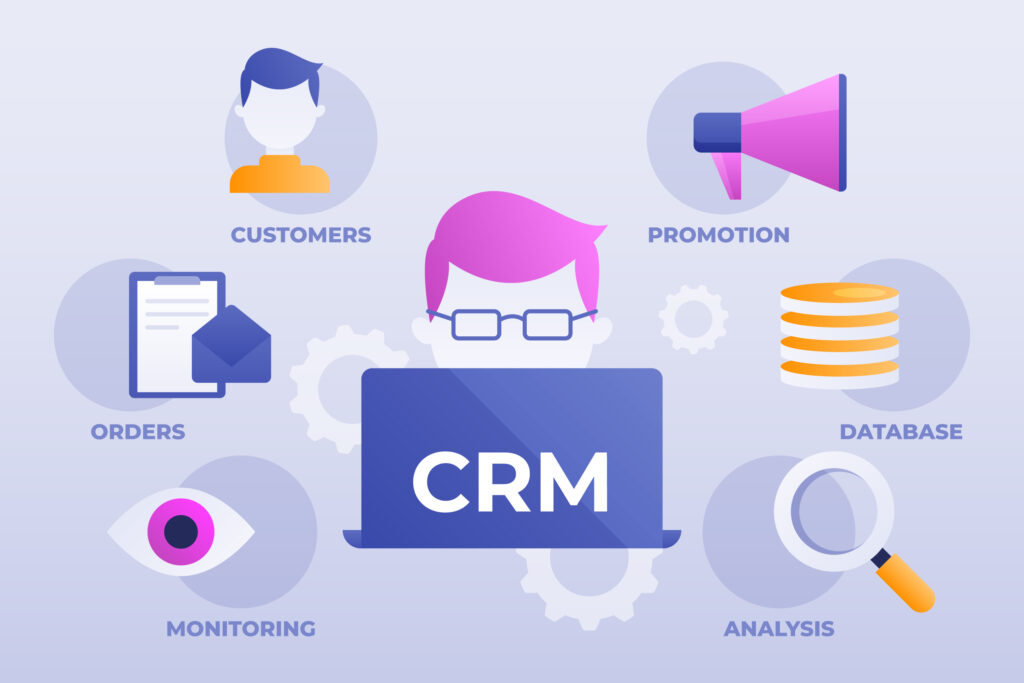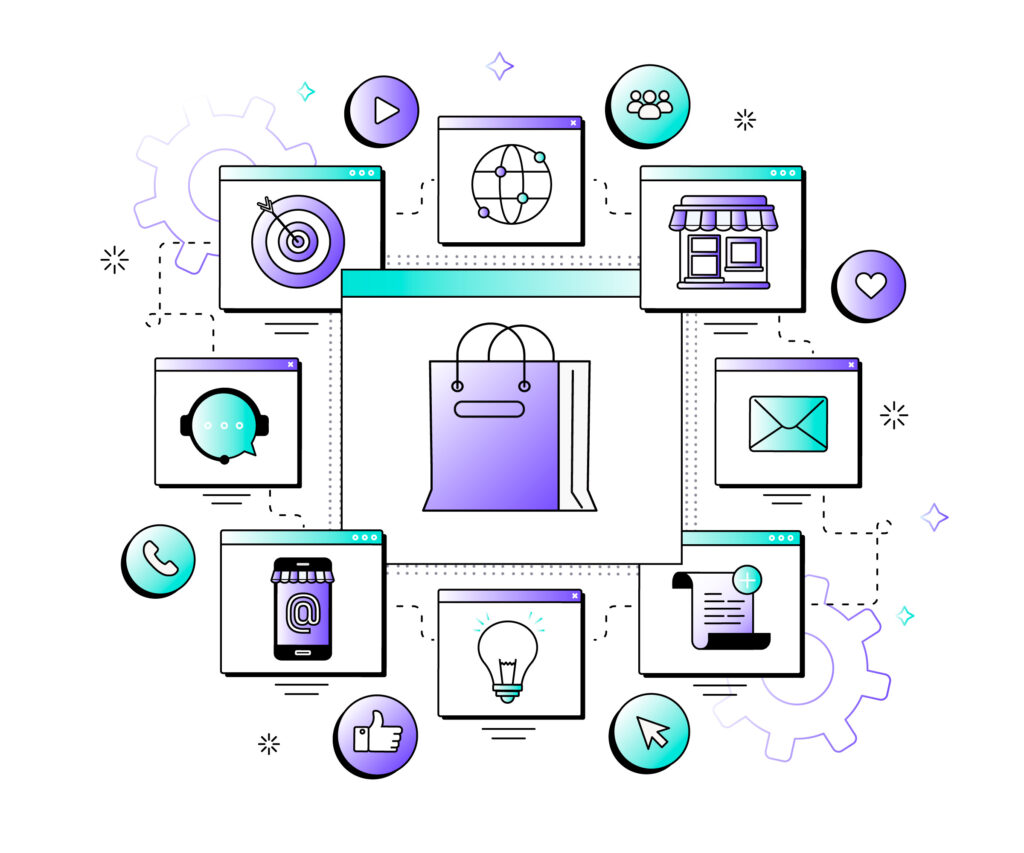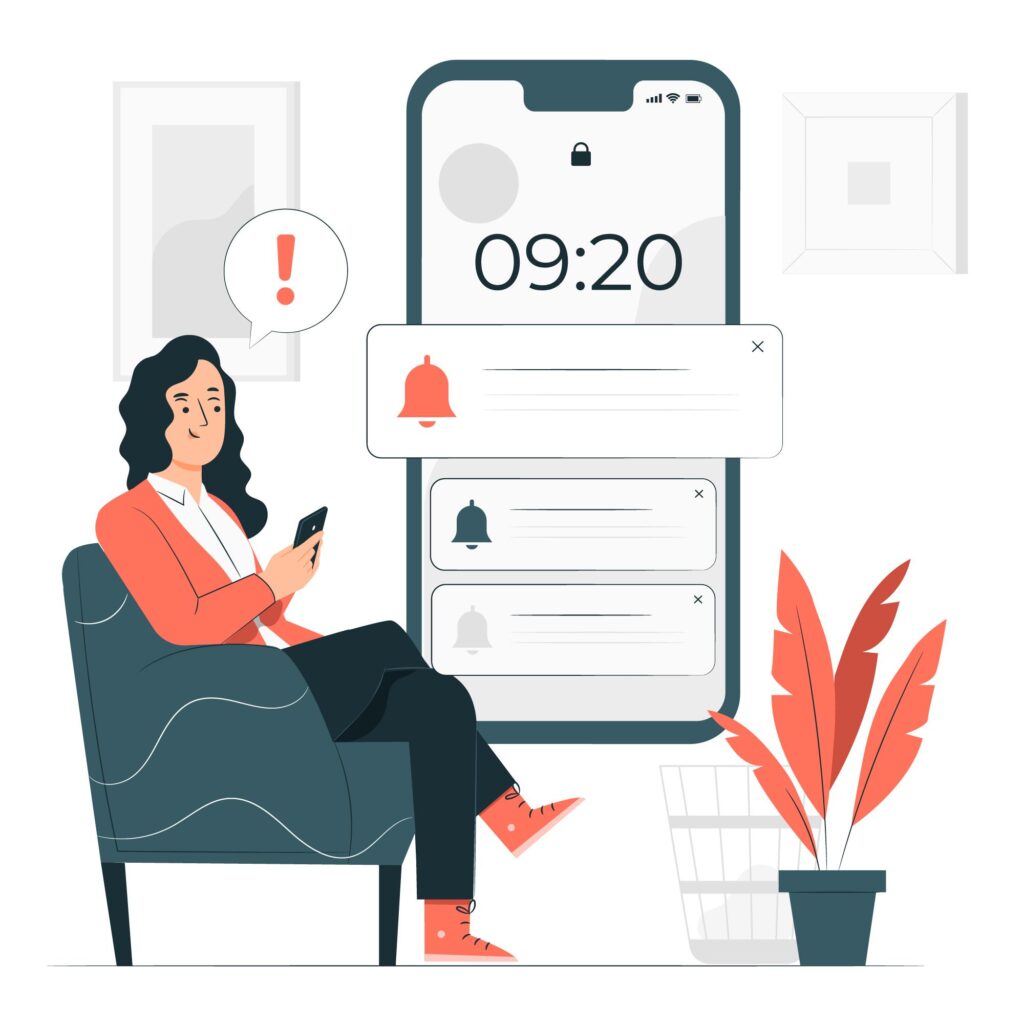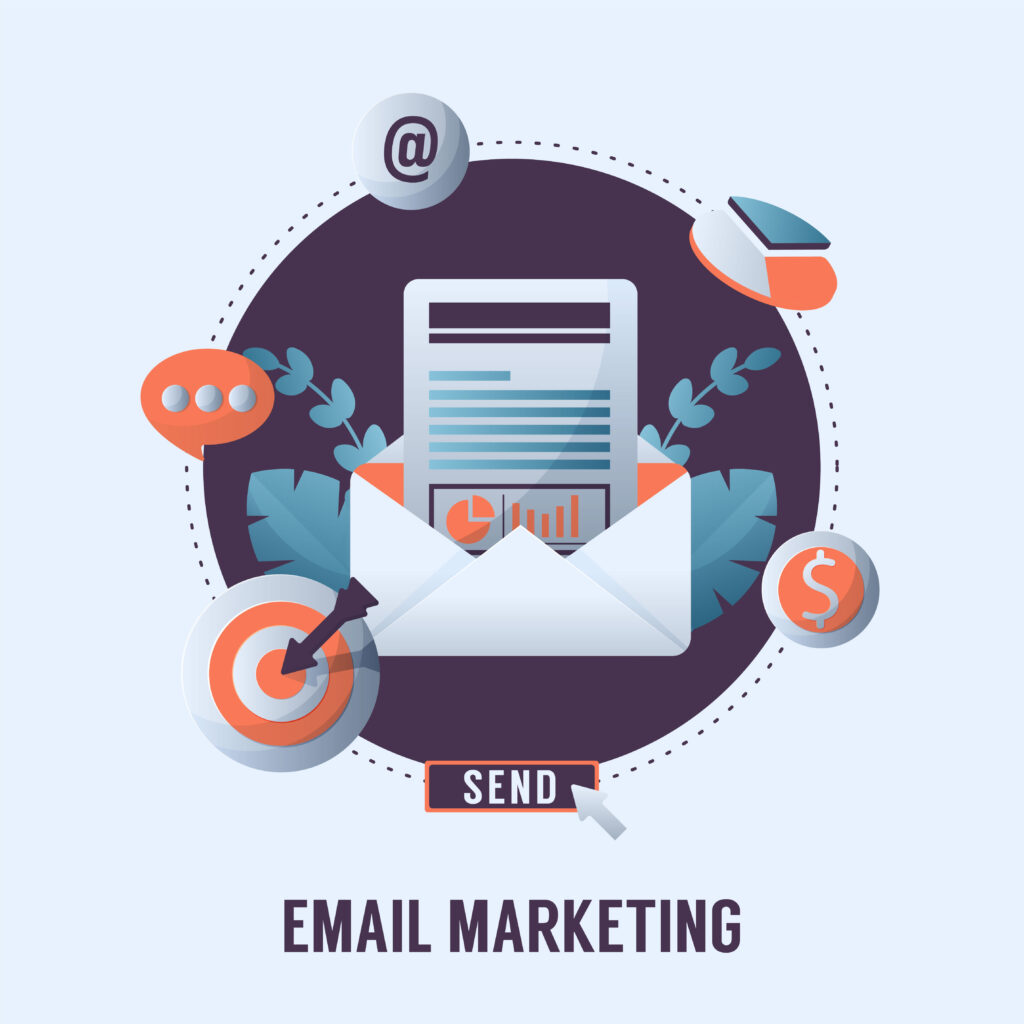In today’s digital age, businesses are swimming in a sea of data and digital interactions. Standing out amidst this chaos demands not just an innovative approach but also a strategic one. Enter CRM Marketing – the game-changing strategy that can revolutionize how you manage and nurture customer relationships.
This guide is crafted especially for digital marketers, business owners, marketing students, and anyone keen on harnessing the power of CRM Marketing to elevate their business. Here, you’ll uncover the principles of CRM Marketing, its benefits, and how integrating it can propel your business to new heights.
Purpose of the Guide
Our mission is to introduce you to CRM Marketing and highlight its pivotal role in the digital marketing ecosystem. You’ll learn about the evolution of CRM systems and how they offer indispensable benefits, giving you a competitive edge in an increasingly crowded marketplace.
CRM is more than just a trendy term; it’s a strategy that’s critical for business success. By structuring your approach to managing customer interactions, you can significantly improve engagement and ensure loyalty. Integrating CRM Marketing into your marketing strategy results in a seamless customer experience, increased profitability, and a sustainable competitive advantage.
In this comprehensive guide, we’ll cover everything from the fundamentals of CRM Marketing to its core components and advanced tactics. You’ll also gain insights into CRM channels, implementation strategies, and future trends. By the end, you’ll be equipped with the knowledge to transform your business through effective CRM practices.
Table of Contents
Fundamentals of CRM Marketing
What is CRM Marketing?
Customer Relationship Management (CRM) Marketing is all about managing and analyzing customer interactions and data throughout the customer lifecycle. The goal? To improve customer service, increase retention, and drive sales growth. Key data sources include your company’s website, phone interactions, email exchanges, live chat, and social media engagements.

Gone are the days when businesses relied on Rolodexes and spreadsheets. Today, CRM Marketing systems are sophisticated, data-driven platforms powered by AI and machine learning. These systems offer actionable insights and automate repetitive tasks, making your marketing efforts more efficient and effective.
The main objectives of CRM Marketing include improving customer engagement and retention, tailoring marketing efforts to individual needs, and driving sales growth. Businesses with CRM Marketing systems see an average increase of 27% in customer retention rates, proving the significant impact of these systems.
Retention in CRM Marketing vs. Acquisition in Performance Marketing
Retention in CRM marketing refers to the strategies and practices employed to keep existing customers engaged and satisfied, ultimately encouraging them to continue making purchases. This focuses on building long-term relationships and fostering loyalty.
In contrast, performance marketing centers on acquiring new customers, driving immediate results through targeted campaigns designed to convert leads into sales.
The interplay between retention and acquisition is crucial.
Effective retention strategies not only enhance customer satisfaction but also support acquisition efforts by generating positive word-of-mouth and referrals. When existing customers are happy, they become brand advocates, naturally attracting new customers without additional acquisition costs. This reduction in customer acquisition cost (CAC) emerges as loyal customers spread the word, leading to increased brand visibility and credibility.

Furthermore, focusing on retention enhances the customer’s lifetime value (CLV).
Satisfied customers are more likely to make repeat purchases, engage with upselling and cross-selling opportunities, and contribute to stable revenue growth over time. By prioritizing retention, brands can reduce churn rates, lower CAC, and ultimately create a thriving community of loyal customers who not only return but also help propel the business forward.
Embrace a dual focus on retention and acquisition, and witness explosive growth through empowered customer relationships!
Core Components of CRM
Customer Data Management
Data management is the backbone of successful CRM Marketing strategies. Tools like Salesforce, HubSpot, and Zoho CRM offer data integration and real-time analytics, enabling you to make informed decisions based on accurate data.
To build a robust CRM Marketing that excels in segmentation and personalisation, businesses must focus on collecting and analyzing various data points.

Key indicators include demographics such as age, gender, and location, which allow for targeted messaging.
Behavioural data—encompassing purchasing history, website interactions, and engagement levels—enables businesses to understand customer preferences and tailor communications accordingly.
Additionally, psychographic data—such as interests, values, and lifestyle choices—provides insights into what motivates customers, allowing for a deeper connection.
By harnessing these data points, businesses can create segmented marketing campaigns that resonate with individual customers, significantly enhancing the effectiveness of their CRM Marketing strategies and driving meaningful engagement.
Embrace this approach, and watch your customer relationships flourish!
Customer Segmentation with the help of data
Customer segmentation is the strategic practice of dividing a customer base into distinct groups based on specific characteristics, behaviours, or needs. This vital process enables businesses to personalise their marketing efforts, ensuring that each segment receives tailored messaging that resonates with their unique preferences.
Customer segmentation enhances targeted marketing efforts by dividing your customer base into distinct groups. Advanced segmentation, powered by AI and machine learning, allows for more precise targeting and improved marketing outcomes.
By leveraging segmentation, companies can refine their outreach, improve customer experiences, and ultimately foster loyalty.
Effective customer segmentation directly enhances retention rates and increases Customer Lifetime Value (CLV).
When businesses understand the distinct desires and challenges of different customer segments, they can create targeted engagement strategies that drive satisfaction and loyalty.
For instance, by identifying high-value segments that exhibit potential for growth, companies can focus their resources on nurturing those relationships, thereby boosting retention rates and cultivating long-term loyalty.
Investing in customer segmentation isn’t just about understanding your customers; it’s about transforming that understanding into actionable insights. Embrace this practice, and watch your marketing efforts thrive as you create deeper connections that lead to exponential growth in retention and CLV!
Personalization for Customer Segments
Personalization is the strategic approach of tailoring experiences, communications, and offerings to meet the unique preferences and needs of individual consumers.
It goes beyond basic customer service; it creates a profound connection by making each customer feel valued and understood. When companies effectively leverage data points and segmentation, they can craft personalized messages and solutions that resonate deeply, resulting in increased engagement and loyalty.
Data points and segmentation play a pivotal role in driving successful personalization efforts.
By analysing customer behaviours, preferences, and demographics, businesses can segment their audience into meaningful groups. This analysis allows for targeted campaigns that address the specific desires of each segment, thus generating relevant content that speaks directly to them.
For instance, an e-commerce platform might use purchase history and browsing behaviour to recommend products tailored specifically to individual users, ensuring they receive suggestions that truly interest them.
Moreover, effective personalization enhances communication by fostering a two-way dialogue. Customers who receive personalized interactions are more likely to engage with the brand, share feedback, and express their needs. This continuous loop of communication not only enriches customer relationships but also empowers brands to adapt their strategies in real-time.
Many successful brands exemplify the power of personalization.
Netflix employs sophisticated algorithms to suggest shows and movies tailored to each user’s viewing habits, resulting in increased watch time and subscriber retention. Similarly, Amazon utilizes past purchase data and search histories to present personalized product recommendations, driving sales and enhancing the shopping experience.
By embracing personalization, companies can create not just customers, but loyal advocates who champion their brand. Embrace personalization, and watch your business flourish as you connect authentically with your audience!
CRM Marketing Channels to Communicate with the Users
A CRM Marketing channel refers to the various platforms and avenues through which a business interacts with its customers, gathering valuable data and facilitating communication.
CRM Marketing utilizes various channels to reach and engage customers effectively. These channels include push notifications, WhatsApp, email, SMS, in-app messages, and website banners. Each channel offers unique benefits and can be strategically used to enhance customer interactions.

Benefits to a Business
Utilising CRM Marketing channels enables businesses to enhance customer engagement, streamline communication, and foster loyalty.
By leveraging these channels effectively, companies can respond swiftly to customer inquiries, address concerns, and keep clients informed about new products or services. This proactive approach enhances the overall customer experience, ensuring that clients feel valued and connected to the brand.
Effectiveness with Customer Data, Segmentation, and Personalisation
Connecting CRM Marketing channels with robust customer data, segmentation, and personalisation powers targeted marketing efforts that resonate with individual preferences and behaviours. This synergy allows businesses to tailor their messages, promotions, and services, ensuring relevance and enhancing conversion rates.
When companies understand their customers on a granular level, they can anticipate needs, personalise interactions, and ultimately drive higher customer satisfaction and loyalty.
By effectively utilising a diverse array of CRM Marketing channels, and integrating them with data-driven strategies, businesses can establish lasting connections with their customers, driving growth and success. The time to take charge and cultivate meaningful relationships is now—embrace CRM Marketing channels to fuel your business’s potential!
List of CRM Marketing Channels
Push Notifications
Push notifications provide a direct line of communication to customers, delivered right to their devices. These timely alerts can be utilised to announce promotions, share updates, or remind users of abandoned carts.
Leveraging push notifications increases customer engagement and drives action due to their immediate nature. To maximise their effectiveness, messages should be crafted with urgency and relevance, ensuring they catch the user’s attention without being intrusive.
Impact of Push Notifications on Customer Engagement
Recent studies reveal that push notifications can significantly enhance customer engagement, with up to 50% of users opting into receiving them. Data shows that personalised push notifications lead to 4 to 10 times higher engagement rates compared to generic messages.

Furthermore, businesses that actively utilise push notifications have reported an increase in app retention rates by as much as 20%. This compelling evidence underscores the power of timely and relevant communication in building brand loyalty.
Now is the time to harness this potential—integrate smart push notification strategies to keep your audience engaged and informed, ultimately driving higher conversion rates and boosting overall business success.
Email Marketing
Email marketing remains a cornerstone of CRM Marketing strategy, offering a personal touch to customer engagement. By segmenting audiences and personalising content, businesses can deliver targeted messages that resonate with individual interests.
Regular newsletters, promotional offers, and tailored recommendations encourage customers to interact with the brand consistently. The key to successful email marketing is not just frequency, but also relevancy—make every communication a valuable experience for the recipient.
Impact of Email Marketing on Businesses
Email marketing continues to stand out as one of the most effective channels for driving conversions and fostering customer loyalty. According to a recent report, for every $1 spent on email marketing, businesses can expect an average return of $42, showcasing its immense value.
Moreover, personalised email campaigns have been shown to achieve transaction rates that are six times higher than non-personalised messages.

Additionally, studies indicate that 81% of small businesses rely on email as their primary customer acquisition channel.
With an impressive open rate of around 20% and a click-through rate of approximately 2.6%, tailored email communications not only engage consumers but also significantly improve brand visibility. This data underlines the undeniable power of email marketing—it’s time to leverage this tool and transform your customer relationships into lasting partnerships.
WhatsApp Marketing
With a rapidly growing user base, WhatsApp has emerged as a powerful platform for real-time customer interaction. Brands can utilise WhatsApp marketing to engage customers through direct messaging, customer support, and promotional campaigns.
The informal nature of the platform allows for a more personal connection, making customers feel appreciated. Use it to share exclusive offers or provide updates, ensuring messages are crafted to foster a sense of community.
How is WhatsApp Marketing impacting Brand Communication?
The impact of WhatsApp marketing is undeniable, with recent data highlighting its effectiveness in reaching and engaging audiences.
As of 2024, WhatsApp boasts over 2 billion active users globally, making it one of the most popular messaging platforms available. Studies show that brands leveraging WhatsApp for customer engagement experience response rates as high as 98%, far surpassing traditional email open rates.
Furthermore, 57% of users say they are more likely to shop with a brand that communicates via WhatsApp, demonstrating the platform’s potential to drive conversions.
By employing WhatsApp as part of your marketing strategy, you can harness the power of instant communication to not only boost customer satisfaction but also enhance your overall business growth. It’s time to embrace this dynamic channel and make a significant impact on your audience.
SMS Marketing
SMS marketing offers an incredibly high open rate, making it an essential tool for businesses looking to reach customers quickly.
With concise and clear messaging, brands can alert customers to flash sales, important updates, or time-sensitive offers. The immediacy of SMS messages creates a sense of urgency, prompting quick responses. It’s vital to obtain consent and provide value through these messages to maintain customer trust and ensure a positive experience.
The Power of SMS Marketing: Key Statistics
SMS marketing is not just effective; it’s a powerhouse of communication that every brand should leverage.
Research indicates that SMS messages boast an astonishing open rate of 98%, with an average response time of just 90 seconds. This rapid engagement can drastically increase customer interactions and conversions.
Furthermore, 75% of consumers prefer receiving communication from brands via text, highlighting the mode’s popularity and acceptance. Brands utilizing SMS marketing have reported that 45% of recipients take action after receiving a text, whether it’s making a purchase or clicking through to learn more.
This compelling data underscores the necessity of integrating SMS marketing into your overall strategy—don’t miss the opportunity to connect with your audience instantly and effectively!
In-App Nudges
In-app nudges enhance user experience by guiding customers seamlessly through the application. These gentle prompts can highlight new features, encourage usage of the platform, or highlight promotions while the user is already engaged.
By being contextually relevant and timely, in-app nudges can significantly improve customer retention and satisfaction. The ultimate goal is to ensure that every interaction within the app feels intuitive and beneficial to the user.
The Impact of In-App Nudges: Key Data Insights
In-app nudges are not merely beneficial; they are a crucial component of a successful user engagement strategy.
Studies reveal that apps incorporating in-app nudges see a staggering 20% increase in user retention rates compared to those that do not.
Furthermore, 70% of users report feeling more satisfied with their experience when guided by these prompts, resulting in increased loyalty and long-term usage of the application.
Moreover, in-app nudges can drive substantial user action; data shows that users who engage with nudges are 50% more likely to explore new features or make in-app purchases.
This powerful evidence illustrates that integrating carefully designed nudges not only enhances user experience but also directly contributes to your bottom line. Don’t underestimate the impact of these strategic interactions—start implementing them today to maximise your app’s potential!
Personalised Content
Creating personalised content is essential for driving engagement in today’s competitive landscape. By analysing customer data and behaviour, businesses can deliver content that aligns with individual preferences.
This might include tailored product recommendations, customised emails, or even dynamic website content that adapits as users navigate. The more relevant and personalised the experience, the stronger the connection customers will feel with the brand, propelling loyalty and advocacy.
Embrace these CRM channels with confidence and assertiveness to ensure your business is not just participating in conversations but leading them effectively! Each channel is a powerful tool—harness their potential and elevate your customer relationships to new heights.
Data shows that personalised content can dramatically transform customer engagement metrics. According to recent studies, 80% of consumers are more likely to make a purchase when brands offer personalised experiences.
Furthermore, personalised email campaigns can increase click-through rates by up to 14% and conversion rates by 10%. This isn’t just coincidence; tailored content fosters a sense of recognition and appreciation among customers, leading to higher retention rates.
Additionally, businesses that leverage personalisation see an average increase of 20% in sales. This compelling evidence underscores the importance of making personalised content a cornerstone of your marketing strategy—don’t wait any longer, take charge now and watch your engagement soar!
Conclusion
In today’s dynamic marketplace, the ability to connect with your customers on a personal level is not just advantageous—it’s essential. Embracing CRM marketing strategies equips your business with the tools needed to foster deeper relationships that drive engagement, loyalty, and ultimately, sales.
Do not underestimate the power of tailored experiences; they are not merely trends but crucial components of a successful marketing strategy. As we’ve explored, the statistics speak for themselves—CRM Marketing can be the game changer your business needs to rise above the competition.
Step forward with confidence and assertiveness; implement these strategies and witness the transformative impact on your customer relationships. The time to act is now—take charge, inspire loyalty, and elevate your brand to unprecedented heights!

Pingback: Retention vs Acquisition: Balancing Business Growth in 2024 - The Alpha Growth
Pingback: How To Drive Customer Retention with CRM in 2024 - The Alpha Growth
startup talky Pretty! This has been a really wonderful post. Many thanks for providing these details.
BaddieHub There is definately a lot to find out about this subject. I like all the points you made
BaddieHub Hi there to all, for the reason that I am genuinely keen of reading this website’s post to be updated on a regular basis. It carries pleasant stuff.